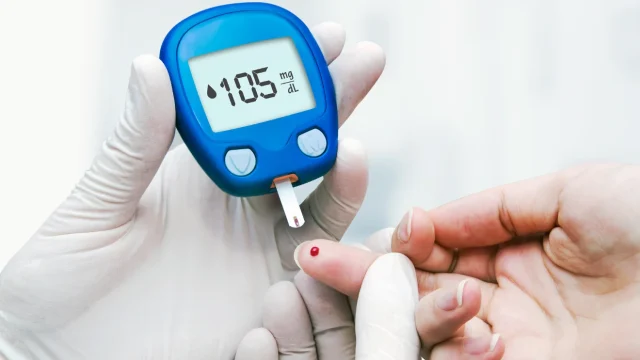Nephrotic Syndrome is a complex renal condition that affects both adults and children. Also, it is characterised by specific symptoms including swelling in hands and feet, rise in cholesterol levels, abdominal pain and loss of appetite among others.
This disorder occurs when your kidneys’ filtering system becomes damaged, leading to a range of symptoms that can significantly impact your daily life. To prevent the condition from going bad to worse it requires careful management.
In this comprehensive guide, we’ll explore the causes, symptoms, and treatment options for nephrotic syndrome, providing you with the knowledge you need to understand and manage this condition effectively.
What is Nephrotic Syndrome?
When our kidneys release excessive amounts of protein (proteinuria) in our urine (pee), the condition is called Nephrotic syndrome. It usually results from problems with our kidneys’ filtering units or glomeruli. The glomeruli are tiny blood vessels in our kidneys that remove wastes and excess fluids from the blood and send them to the bladder as urine. When “glomeruli” the filtering part of your kidney is damaged, too much protein slips through the filters into your urine. The result is nephrotic syndrome. We cannot consider Nephrotic syndrome to be a disease. However, we can consider it a group of symptoms that can appear if your kidneys aren’t working right.
Common Nephrotic Syndrome Symptoms Include:
- Albuminuria: Presence of large amounts of the protein albumin in our pee.
- Hyperlipidemia: High fat and cholesterol levels in our blood.
- Oedema: Swelling, usually in our legs, feet or ankles. Swelling may also occur in our hands or face.
- Hypoalbuminemia: Low levels of albumin in our blood.
- A general loss of appetite.
- An overall feeling of being unwell or sick.
- Abdominal pain from your ribs to the pelvis.
- Foamy or frothy pee.
Symptoms of nephrotic syndrome also include loss of minerals and vitamins essential to your health and development, including calcium and vitamin D. Consequently, in children with nephrotic syndrome, this may affect their growth. Many individuals may develop osteoporosis, which weakens their hair and nails.
What Causes Nephrotic Syndrome?
Damaged glomeruli due to kidney diseases are the primary cause of the nephrotic syndrome. Many diseases can cause glomerular damage and lead to nephrotic syndrome, including:
- Amyloidosis: This happens when amyloid proteins build up in your vital organs. Also, amyloidosis usually occurs in your kidneys, affecting their ability to filter.
- Diabetes-Related Nephropathy: When your kidney isn’t working properly and causes damage or dysfunction to one or more of the nerves in your kidneys. Moreover, it causes numbness, tingling, muscle weakness and pain in your affected area.
- Lupus: This autoimmune disease causes inflammation, swelling and pain throughout your body, including your kidneys.
- Membranous Nephropathy: This disease causes the body’s immune system to attack the filtering membranes in your kidneys.
- Diabetic Kidney Disease: If you are Diabetic, you may face kidney damage (diabetic nephropathy) that affects the glomeruli.
- Minimal Change Disease: This nephrotic syndrome affects children. It causes abnormal kidney function.
- Focal Segmental Glomerulosclerosis: This causes scarring of some of the glomeruli. Also, this condition can result from another disease, genetic reasons or certain medications or occur for no known reason.
- Membranous Nephropathy: This refers to thickening membranes within the glomeruli. Also, it may be due to deposits made by the immune system, associated with other medical conditions, such as lupus, hepatitis B, malaria and cancer.
Nephrotic Syndrome Treatment
Nephrotic syndrome symptoms can be relieved with treatments and prevent further damage to your kidneys. Also, Nephrotic syndrome treatment includes addressing the underlying cause and taking steps to reduce high blood pressure, high cholesterol, swelling and infection risks. Additionally, treatment usually includes medications and changes to your diet.
Your doctor may give you some blood pressure medications to slow down a kidney disease that causes nephrotic syndrome, including:
- Angiotensin-converting enzyme (ACE) inhibitors
- Angiotensin receptor blockers (ARBs)
These medications may help reduce the pressure inside your glomeruli, which reduces albuminuria. Further, the doctor may suggest a diuretic in addition to an ACE inhibitor or an ARB to help your kidneys remove fluid from your blood. Also, Diuretics help reduce blood pressure and swelling.
Statins may be prescribed to lower your cholesterol. Doctors may also advise you to take a yearly influenza vaccine and a pneumococcal vaccine to protect your body from bacterial infection. Further, you may be given anticoagulants or blood thinners that help prevent blood clots. You should accept that the goal of treatment is to relieve symptoms, prevent complications, and delay kidney damage. Moreover, you may need treatment for life.
Diet Management
Nephrotic symptoms can be managed to some extent, by changing how you eat. You can consider making changes to the amount of protein, salt and fat you eat. Also, limiting salt intake to a minimum can help prevent swelling and keep your blood pressure at a healthy level.
How is Nephrotic Syndrome diagnosed?
Nephrotic syndrome is diagnosed based on several laboratory tests, including urine and blood tests.
- Urine Tests: You will need to take a urine test, to measure how much protein your kidneys are filtering out.
- Blood Tests: Blood tests help check on other kidney functions and check for diseases that could be a secondary cause of nephrotic syndrome, such as diabetes. This is why, several blood tests may be recommended to help determine the underlying cause of nephrotic syndrome. Moreover, blood tests also help to assess the risk of complications in overall kidney function.
- Kidney Biopsy: To determine the root cause, doctors suggest a kidney biopsy, which requires taking a tissue sample for study under a microscope.
Conclusion
Nephrotic Syndrome can significantly impact your quality of life. Therefore, if you or a loved one are experiencing symptoms of Nephrotic Syndrome, it is crucial to seek professional medical advice promptly. Also, understanding its causes, symptoms, and treatment options is the first step towards effective management.
The experienced nephrologists at Apollo Clinic Guwahati are here to provide comprehensive care and personalised treatment plans to help you manage this condition effectively.

Dr. Gayatri Pegu Bora
Why wait to take control of your kidney health? Schedule your consultation today by calling us at 090856 12000 and let Apollo Clinic Ulubari’s kidney specialist doctors guide you towards a healthier, brighter future!
If you think you have symptoms of nephrotic syndrome, make an appointment with the best nephrologist in Guwahati, Dr. Gayatri Pegu Bora.











